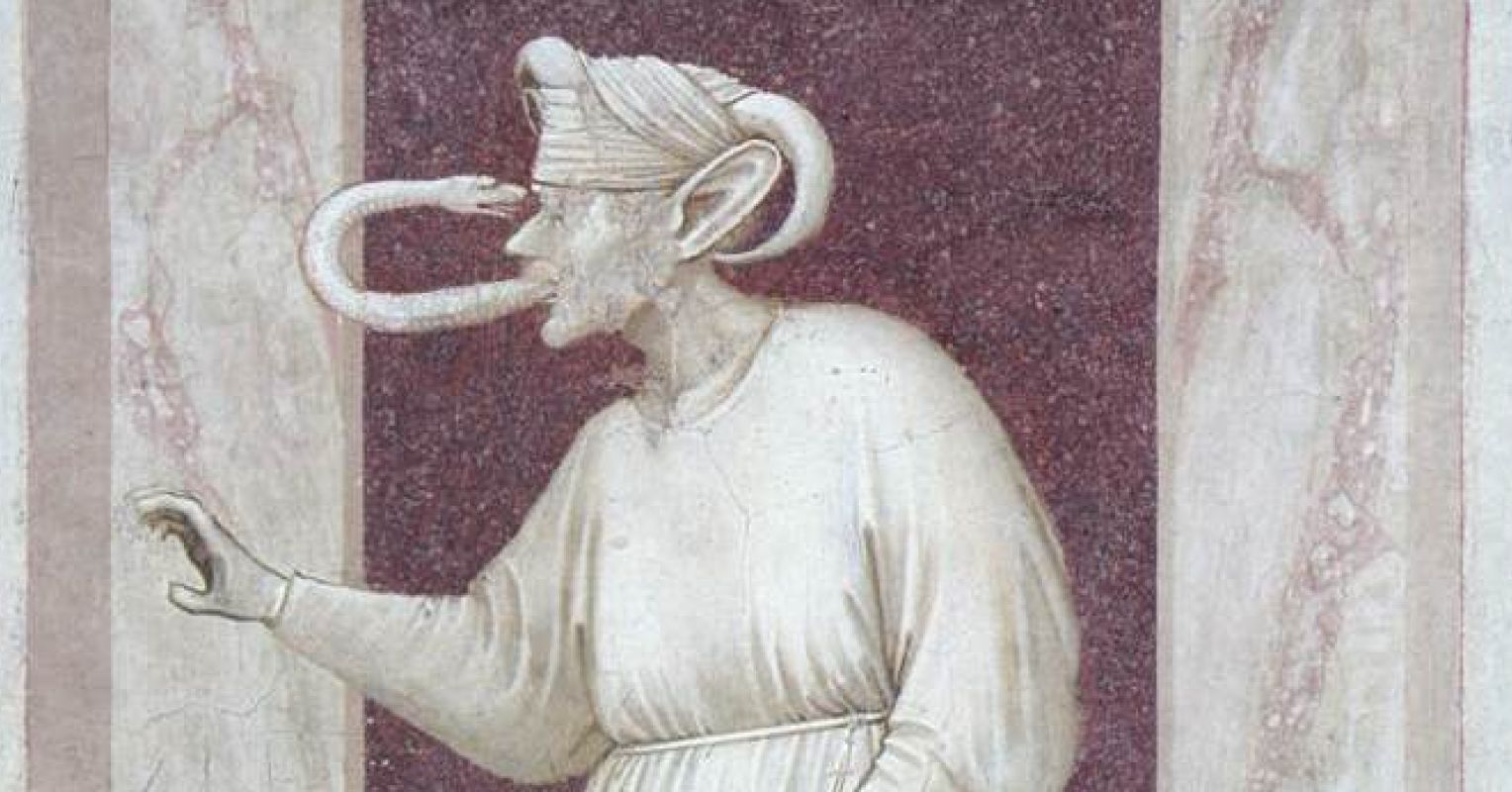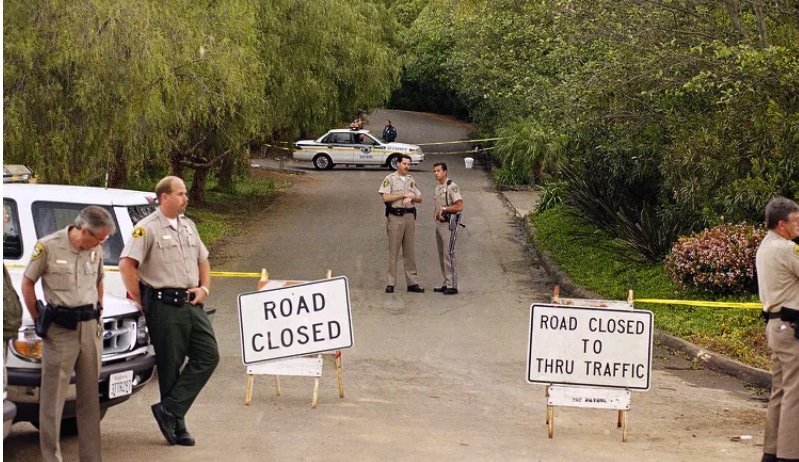The Dark Side of Meaning
by Daniel E.
“If you look at life one way, there is always cause for alarm.”
― Elizabeth Bowen, The Death of the Heart
As discussed in the HBO documentary, the daily life of the Heaven's Gate cult often seemed rich with meaning. The big questions of existence may not have been completely solved but were answered nonetheless. For the members of Heaven's Gate, their mission had cosmic levels of spiritual importance, overshadowing their Borg-like lifestyle of humble clothing, horrible haircuts, lack of food choices, and avoidance of family members -- including their own children. But the meaning eventually became deadly. Suicide in general is often accompanied by a sense of urgency, and these cult suicides were no different -- an infamous ending far more tragic than the need to join the cult in the first place.
What the Washington Post had to say about cults in 1997: "The human craving for stability and meaning is cited as a contributing factor in the rise of thousands of new religious, political and psycho-social sects in the second half of this century." (WashingtonPost.com staff, April 26, 1997)
Usually, with cults, their initial attraction is often understood as a desperate need for belonging, facilitating a childlike fantasy bond with the cult leader. But the need for meaning or the "big picture" can add fuel to the fire of desperation. Terror management theory posits that death anxiety is behind the need for so much meaning. But humans have less death anxiety than some researchers would believe.
Perhaps an overemphasis on meaning is to defend against the inherent trauma of existence, a challenge for even the most flexible and accepting among us. But even when things are going well, one may need cognitive defusion or some other vacation from the meaning machine. The inner critic speaks in terms of meaning and values. ACT therapy makes a very clear point about values -- to hold them lightly.
One way to prevent being overwhelmed by life is to try to think more concretely:
A similar approach is to be more open to relatively neutral or lighter thoughts and experiences that are less dramatic and attention-grabbing. It is also easy to forget that the nervous system can be a refuge rather than just a source of anxiety. For a variety of issues, there are also solution-focused approaches, such as doing just one thing different and recognizing that sometimes the solution has nothing to do with the problem.
To reiterate, one can have too much meaning or motivation. It can lead to impulsive thinking, perfectionism, anxiety, or burnout -- a neurotic recipe for running on empty. As psychoanalyst Karen Horney wrote: “Concern should drive us into action, not into a depression.” Instead of simply experiencing concern, one can be lost in an abstract mind maze: “Real obstacles don't take you in circles. They can be overcome. Invented ones are like a maze" (Barbara Sher).
One of my favorite quotes from Horney still bites: “The pride in intellect, or rather in the supremacy of the mind, is not restricted to those engaged in intellectual pursuits but is a regular occurrence in all neurosis.”
In other words:
"Certainty is missing the point entirely. Faith includes noticing the mess, the emptiness and discomfort, and letting it be there until some light returns."
― Anne Lamott, Plan B

Further reading:

 www.psychologytoday.com
www.psychologytoday.com

 www.psychologytoday.com
"A complex web of dysfunctional and distorted beliefs no doubt contributed to the participants’ fatal capacity for self-sabotage. We might say that in seeking to evolve spiritually to a higher level, they lost touch with what was available to them within."
www.psychologytoday.com
"A complex web of dysfunctional and distorted beliefs no doubt contributed to the participants’ fatal capacity for self-sabotage. We might say that in seeking to evolve spiritually to a higher level, they lost touch with what was available to them within."
by Daniel E.
“If you look at life one way, there is always cause for alarm.”
― Elizabeth Bowen, The Death of the Heart
As discussed in the HBO documentary, the daily life of the Heaven's Gate cult often seemed rich with meaning. The big questions of existence may not have been completely solved but were answered nonetheless. For the members of Heaven's Gate, their mission had cosmic levels of spiritual importance, overshadowing their Borg-like lifestyle of humble clothing, horrible haircuts, lack of food choices, and avoidance of family members -- including their own children. But the meaning eventually became deadly. Suicide in general is often accompanied by a sense of urgency, and these cult suicides were no different -- an infamous ending far more tragic than the need to join the cult in the first place.
What the Washington Post had to say about cults in 1997: "The human craving for stability and meaning is cited as a contributing factor in the rise of thousands of new religious, political and psycho-social sects in the second half of this century." (WashingtonPost.com staff, April 26, 1997)
Usually, with cults, their initial attraction is often understood as a desperate need for belonging, facilitating a childlike fantasy bond with the cult leader. But the need for meaning or the "big picture" can add fuel to the fire of desperation. Terror management theory posits that death anxiety is behind the need for so much meaning. But humans have less death anxiety than some researchers would believe.
Perhaps an overemphasis on meaning is to defend against the inherent trauma of existence, a challenge for even the most flexible and accepting among us. But even when things are going well, one may need cognitive defusion or some other vacation from the meaning machine. The inner critic speaks in terms of meaning and values. ACT therapy makes a very clear point about values -- to hold them lightly.
One way to prevent being overwhelmed by life is to try to think more concretely:
Too many people ask nothing but “Why” questions. They analyze and analyse problems - but no solution. “you can analyse a glass of water and you’re left with a lot of chemical components, but nothing you can drink”.
“Why?” questions can drive us crazy. “What?” questions drive us sane.
What questions lead us to practical solutions.
― Peter McWilliams
A similar approach is to be more open to relatively neutral or lighter thoughts and experiences that are less dramatic and attention-grabbing. It is also easy to forget that the nervous system can be a refuge rather than just a source of anxiety. For a variety of issues, there are also solution-focused approaches, such as doing just one thing different and recognizing that sometimes the solution has nothing to do with the problem.
To reiterate, one can have too much meaning or motivation. It can lead to impulsive thinking, perfectionism, anxiety, or burnout -- a neurotic recipe for running on empty. As psychoanalyst Karen Horney wrote: “Concern should drive us into action, not into a depression.” Instead of simply experiencing concern, one can be lost in an abstract mind maze: “Real obstacles don't take you in circles. They can be overcome. Invented ones are like a maze" (Barbara Sher).
One of my favorite quotes from Horney still bites: “The pride in intellect, or rather in the supremacy of the mind, is not restricted to those engaged in intellectual pursuits but is a regular occurrence in all neurosis.”
In other words:
"Certainty is missing the point entirely. Faith includes noticing the mess, the emptiness and discomfort, and letting it be there until some light returns."
― Anne Lamott, Plan B
Further reading:

Why Some People Hand Their Lives Over to Cults
The research on abdication syndrome.

Self-Sabotage: Which Parts of Ourselves Are We Fighting?
Why do we adopt self-destructive beliefs?

